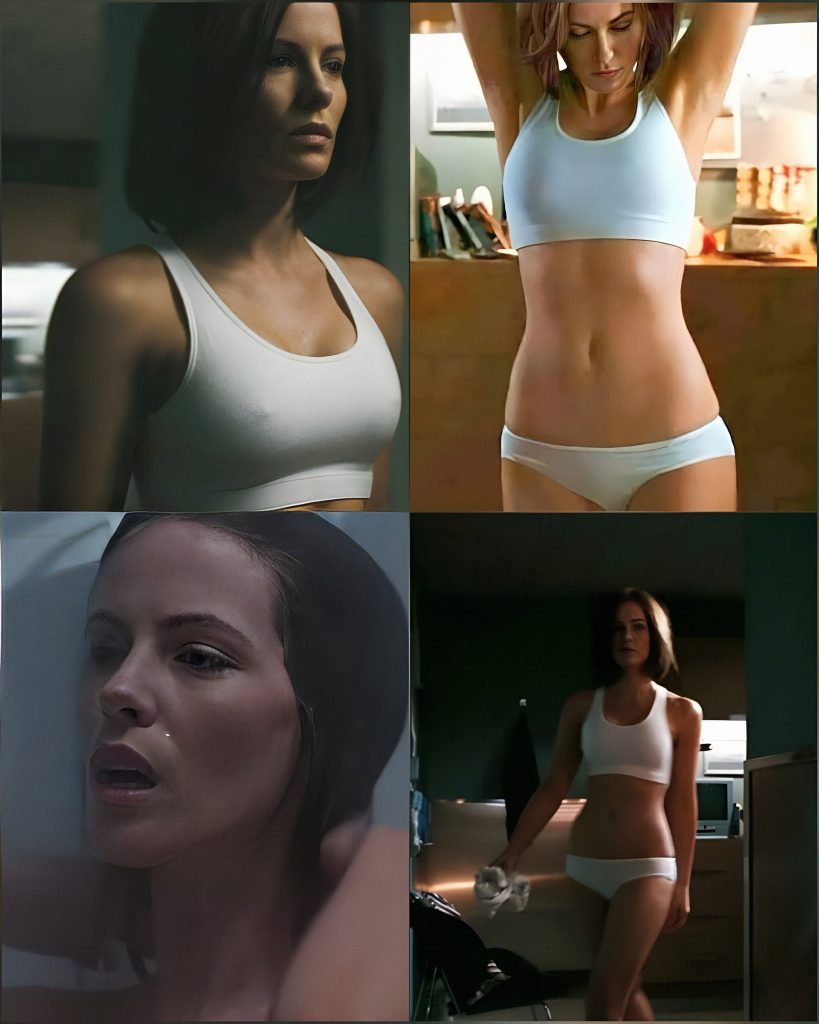In Whiteout (2009), Kate Beckinsale steps into the snow boots of U.S. Marshal Carrie Stetko, a lone law enforcement officer stationed in Antarctica who finds herself investigating a grisly murder—the first ever on the icy continent. Directed by Dominic Sena and based on the 1998 graphic novel by Greg Rucka and Steve Lieber, Whiteout blends murder mystery with survival thriller, and while the film itself was met with mixed reviews, Beckinsale’s performance stands as one of its more compelling elements.
The Role: Carrie Stetko – Strength in Isolation

Carrie Stetko is a woman hardened by trauma and defined by solitude. Assigned to a remote Antarctic research station, she’s on the verge of returning to civilization when a body is discovered frozen in the snow—plunging her into a deadly investigation just as a massive storm threatens to trap everyone at the base.
Beckinsale imbues Stetko with a balance of emotional restraint and physical grit. Haunted by a betrayal in her past and carrying the burden of having exiled herself to Antarctica, Stetko is more than just a stock thriller heroine. Her vulnerability doesn’t undermine her strength—it enhances it.
Beckinsale’s Performance: Stoic, Grounded, and Physically Committed
Known largely for her action-heavy roles in the Underworld franchise, Beckinsale dials back the stylized combat in Whiteout in favor of a more grounded, emotionally restrained portrayal. She plays Stetko as a woman driven by a need for justice but clearly weighed down by fatigue and loneliness.
Her physical performance deserves credit. The film was shot in grueling conditions, and Beckinsale convincingly sells the punishing cold, claustrophobia, and physical exertion demanded by the setting. Whether trudging through snowdrifts or enduring a brutal hand-to-hand fight in subzero temperatures, she carries the film’s physical and emotional stakes.
The Film: A Stylish Yet Uneven Thriller
Visually, Whiteout benefits from its stark, icy aesthetic. The endless whiteness of the Antarctic serves as both a beautiful and oppressive backdrop, reinforcing the film’s themes of isolation and danger. The murder mystery at the heart of the story has promise but ultimately suffers from pacing issues and a lack of sustained tension.
While the graphic novel was praised for its tight plotting and noir sensibility, the film adaptation struggles to balance character development with action. Despite this, Beckinsale remains a constant center of gravity, making Stetko a character worth following even when the narrative falters.
Feminine Strength Without Stereotype
One of the film’s quiet strengths is its refusal to sexualize its lead. Carrie Stetko is not defined by her relationships or her looks—she’s defined by her decisions, her intelligence, and her endurance. Beckinsale plays her not as a fantasy figure but as a deeply human protagonist navigating moral ambiguity and physical extremes.
In a genre often dominated by hypermasculine figures or overly stylized heroines, Stetko is a refreshing deviation: strong, fallible, and completely believable.


